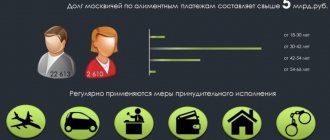Can the audit deficiency be deducted from sick leave payments?
Gennady Konstantinovich Kruglov This lawyer from Moscow 1. Carrying out an audit without your presence is generally a questionable matter. For this alone, its results can be challenged.2. You can “withhold” only if it is established that you are at fault for the shortage. and for this, the commission must consider not only the results of the audit, but also your explanations for this fact. Since you are absent from work, they did not require an explanation from you, and you did not provide it. so there is no reason yet to claim that you are to blame for the shortage. And if such a decision is made without considering your explanations, and even when you are on sick leave, it is illegal.3. The employer has the right to withhold the shortage by order only if its amount does not exceed the average monthly salary, and no more than 20% per month. A larger amount, if the employee does not agree, can only be done through the court.4.
Upcoming innovations in the procedure for paying financial compensation
Since 2014, the state has been considering changing the procedure and structure for paying financial compensation to citizens. Today, responsibility for payments is assumed by the social insurance fund and partly by the organization in which the individual works. The authorities aim to relieve employers from responsibility for making payments and completely transfer powers to the social insurance fund. At the beginning of 2020, no exact decision had been made in this area, so when calculating payments it is necessary to be guided by the old norms and procedures.
Deductions for shortages from sick leave
Withholding shortfalls from wages: amount of withholding In accordance with current legislation, in the event of a loss of property, no more than 20% of the average monthly salary can be withheld from an employee at a time. If the amount of the shortfall is significant, then such an amount can only be recovered by a court order.
Attention
The entire amount of the shortfall can be withheld from a resigning employee, since the limitation of Art. 138 of the Labor Code of the Russian Federation does not apply in this case
If there is collective financial responsibility, the shortage is distributed proportionally.
For example, if one of the employees was on sick leave or on vacation at the time the violation was discovered, then he is not obliged to be held liable for the damage caused. The new employee bears responsibility commensurate with the number of days worked.
Detection of shortages must occur in the presence of a responsible person.
When damage is established, the employee is required to write an explanatory note, which will serve as the basis for deducting the amount from wages. Guilt is not removed even if the individual did not sign an agreement on full financial responsibility.
This problem can be resolved by mutual agreement or through court. Withholding the shortfall from the cashier's salary Due to the fact that cashiers, by the nature of their activities, have contact with cash, signing an agreement on individual responsibility is mandatory.
Otherwise, the absence of such a document may be regarded as failure to fulfill official duties. Law N 255-FZ provides for the possibility of withholding only the amount of benefits paid in excess to the insured person for temporary disability, pregnancy and childbirth, monthly child care benefits in the presence of a calculation error or dishonesty on the part of the recipient (Part 4 of Article 15). In other situations, deductions from temporary disability benefits are made only in cases expressly specified in the law (for example, Article 98, paragraph 9, part 1, article 101
Federal Law of October 2, 2007 N 229-FZ “On Enforcement Proceedings”). Part four of Art. 248 of the Labor Code of the Russian Federation regulates the voluntary procedure for compensation for damage. By agreement of the parties to the employment contract, compensation for damage by installments is allowed.
The amount of compensation established by the judicial authorities exceeds the amount of loss specified in the accounting documents: No. Debit Credit Description of the transaction 1 73.2 94 Amount of loss presented to the guilty party for payment 2 73.2 98.4 The difference between the book value of the shortfall and the amount of loss established by the judicial authorities is reflected 3 70 73.2 Monthly deductions of part of the loss from an employee’s salary in accordance with the regulations of Article 138 of the Labor Code of the Russian Federation 4 98.4 91.1 Deferred income is partially transferred to the company’s income for the reporting period Most frequently asked questions Question No. 1: Upon dismissal, an employee is accrued compensation for unused vacation, while there is a shortage of the same amount.
Is it possible to retain the amount of debt through offset, and formalize such an operation with a purchase and sale agreement for lost property? Answer: According to the rules of accounting workflow, this can be done as follows. Pay compensation according to the pay slip, and then arrange for the deposit of funds to the cash desk or bank as payment for the purchased property.
Question No. 2: Is it possible to withhold the amount of damage caused from employees with collective liability without their signed consent? Answer: Reductions in an employee’s accrued income are made only in those cases provided for in Article 137 of the Labor Code of the Russian Federation. All other accruals can be made only on the basis of the employee’s consent or by court order.
RF on labor: a) in connection with a business trip, with transfer, employment or assignment to work in another locality; b) in connection with the wear and tear of a tool belonging to the employee; c) sums of money paid by the organization in connection with the birth of a child, with the death relatives, with marriage registration. Compensation for unused vacation is not included in this list, which means that damage can be withheld from both salary and compensation. Sovenysh 18-10-2010, 03:09:15 Sovenysh The penalty cannot be applied to compensation payments established by the legislation of the Russian Federation on labor: a) in connection with a business trip, with transfer, reception or assignment to work in another locality; b) due to wear and tear of a tool belonging to the employee; c) sums of money paid by the organization in connection with the birth of a child, the death of relatives, and the registration of marriage.
Word of the law
How are benefits assigned for employee sick days and is alimony deducted from him? The legislation of the Russian Federation provides for the withholding of alimony payments from all types of income received by the payer.
These include:
- salary;
- bonus payments;
- allowances;
- northern coefficients;
- material aid;
- overtime and holiday extra pay;
- payments in kind, etc.
The regulations also officially state that temporary disability benefits are one of the income options, and therefore the specified amount must also be recovered from it.
Let's take a closer look at what the law says in this case.
Deduction at the initiative of the employer from sick leave benefits
Important
In this case, the employee submits to the employer a written obligation to compensate for damages, indicating specific payment terms. The voluntary procedure for compensation for damages does not imply any deductions. Therefore, you do not have the right to withhold any amounts from the employee’s salary to pay for damages.
These amounts are deposited by the employee himself into the employer’s cash desk or transferred to his current account. If the first “withholding” was made without the consent of the employee, then in fact this means that the employer “detained” part of the amounts due to the employee and must pay them with interest (monetary compensation) under Art.
Correctional work sick leave
The time in the protocol is indicated as 5:25 and a witness is indicated, who, according to the PSZ, explained: “I work as a security guard in a motorcade. My shift started at 8:00, and at about 8:30 a nurse came up to me, showed me a test strip and asked me to sign the report because they needed a witness. I did not see the plaintiff himself that day.”
It follows from this rule that the corresponding amount must be calculated from the salary of an employee sentenced to correctional labor from all accruals before personal income tax is deducted from it. Individual educational work is an integral part of a single correctional process; its planning largely determines the results...
The Criminal Executive Code of the Russian Federation requires deductions from the entire amount of wages (both in cash and in kind).
Voluntary payment. The payer writes an application addressed to the employer about the desire to transfer a certain part of the income as alimony in favor of a specific person, indicating the details.
We have an important announcement for those who comment on news and articles: now you can use emoticons (just like on social networks!). They can be installed even if you are writing from a computer. See you in the comments!
Involving convicts in socially useful work is one of the measures to implement the penal policy of the modern state. What already…
You can now see new replies to your comments on your profile. To do this, go to your profile on the “New Answers” tab or follow the notification in the site menu. Have a nice chat!
This circumstance calls into question the possibility of the participation of the investor in market relations as an equal partner, the appropriateness of the efforts and costs that are taken in this direction. The transition to new economic relations put the production of penal systems on unequal conditions with other entities...
You will learn about current changes in the Constitutional Court by becoming a participant in the program developed jointly with Sberbank-AST CJSC. Students who successfully complete the program are issued certificates of the established form.
Having an alimony worker on staff, the employer is obliged to clearly understand from which income alimony can be withheld and from which it cannot. Any deviation from the established standards will entail not only incorrect calculation of wages and alimony payments themselves, but will also affect the amount of mandatory tax payments.
By law, alimony is withheld from the total income of the alimony payer, that is, from what he actually earned.
A narcologist called as a specialist confirmed that the test strips have the property of reacting to substances other than narcotics. The OK inspector drew up an act of suspension from work (from Sunday) and the prosecutor's office was also presented with an act of refusal to sign the act of suspension from work.
Every working person can count on a social guarantee from the state in the form of compensation for days of incapacity for work. This payment allows you to compensate for the time you are actually absent from work.
Please advise on the question: can the specified list of payments refer to one-time payments? Payment of sick leaves made from funds financed from the federal budget? Payment of sick leaves at the expense of the company (without documents)? Additional payment before actual earnings on sick leave (according to the Quantity Agreement)?
Is alimony calculated from sick leave?
Alimony is withheld from the payer's income, but this does not apply to any income. Thus, in accordance with current legislation, benefits for temporary disability of a person are subject to not only personal income tax. The accountant also withholds alimony from him.
We found out that alimony is taken from sick leave. Now let's figure out how to do this.
Urgent news for all accountants: Officials have new requirements for payment orders: with what wording will payments not go through?
. Read more in the Russian Tax Courier magazine.
What is the basis for withholding alimony from a certificate of incapacity for work?
First, let's take a closer look at the concepts of sick leave and alimony.
When a person is on sick leave, the state provides for him. He receives benefits from the Social Insurance Fund. The amount of such payment depends on the employee’s average salary, as well as his insurance period. To receive benefits, you must provide the employer with a correctly completed temporary disability form. The payment will be calculated based on this document.
Important: sick leave is always subject to income tax. Exception: sick leave for childbirth and pregnancy
This can be explained by the fact that such a payment is essentially equal to the salary and is only a temporary replacement.
A little higher, we already found out the answer to the question of whether alimony is calculated from sick leave. Yes, definitely. Sick leave is included in the list of parent’s income from which alimony can be withheld (RF Government Decree 07/18/96 No. 841).
Alimony from sick leave: documents
Now let’s find out on the basis of what documents alimony is calculated from sick leave. The accountant will need at least one executive document from this list:
- writ of execution, which is issued on the basis of a court decision;
- alimony agreement on their payment, which must be certified by a notary;
- court order.
Any other documents do not confirm the need to withhold alimony from the employee’s income. In other words, without any of these documents, the accountant does not have the right to calculate alimony from sick leave.
Important: an employee has the right to apply to the accounting department with a request to withhold and transfer to a third party alimony from all income accrued to him within the company. But in this case, alimony is not withheld from sick leave.
Since there is no reason for this and the documents listed above are not provided.
Based on what documents deductions can be made
The employer should know from what employee income interest is calculated to pay off the resulting debt and in what amount. Since the employer is held administratively liable for illegal deductions, as well as for not making them.
Legally significant human actions give rise to certain rights and obligations.
Basically, obligations of a material nature arise when:
- concluding an agreement or transaction the subject of which is the property rights of a citizen (bank loan agreement, mortgage, property lease agreement, etc.);
- causing harm to human life or movable and immovable property.
But compensation can be recovered only if the victim seeks protection in court and wins the case. Or if a written agreement on compensation for harm is concluded between the parties.
Some duties arise regardless of a person’s actions: the duty to support disabled parents and spouses, the duty to provide for minor children, etc.
If a citizen refuses to voluntarily fulfill the material obligation assigned to him, then the recipient of payments or the lender has the right to contact government authorities so that the executor takes measures against the violator and contributes to the restoration of rights. Enforcers have the right to take measures against the violator only after receiving a written application from the claimant, as well as after receiving a writ of execution or agreement.
The claimant has the right to demand forced execution of a material obligation from the debtor only if one of the following documents is available:
- Judicial act: a positive court decision or court order. To do this, the collector needs to apply to the judicial authority with a statement of claim for debt collection. To win a case, you need to correctly draw up a statement and prove your reasons in court. After the case is considered, the court will issue a judicial act and issue an official document to the applicant. Civil cases regarding debt collection are considered within 2 months. If a person has indisputable evidence (a receipt certified by a notary, an agreement drawn up in accordance with the requirements of the law), then the case will be considered in simplified proceedings. When considering a case under a simplified procedure, the participation of the parties in the trial is not required. The court resolves the dispute on the basis of the documents provided by the parties. The judge issues an order 5 days after the application is submitted. However, upon a justified request of the second party, the court decision rendered in a simplified manner is canceled. In this case, the proceedings are resumed and the case is considered in accordance with the general procedure.
- A notarized agreement concluded by citizens independently or with the participation of a professional mediator, notary or lawyer. If the debtor and the collector are unable to resolve the dispute on their own, then it is better for them to turn to a notary or mediator. By concluding an agreement, the parties can independently determine the timing of the fulfillment of the obligation and the procedure for making payments (partial repayment of the debt or repayment of the debt in one payment). The agreement must be notarized. The execution of the agreement must comply with established requirements. If it was concluded in violation of the requirements specified in regulations, then the debtor may invalidate it in court.
- Writ of execution. You can obtain this document from the judicial authority. To do this, the claimant must apply to the court in which the dispute was resolved. To receive this sheet, you need to write an application and attach a copy of the decision or agreement to it. After the person applies and provides all the necessary papers, the chairman will issue a document with which the claimant can demand forced execution. The writ of execution is issued in 1 copy. If the original sheet is lost, the person who previously received it can again contact the chairman with an application for a duplicate. For re-issuance of a sheet, a state fee must be paid, the amount of which is determined by the Tax Code of the Russian Federation. A copy can only be obtained from the institution where the original was received.
The citizen who is entrusted with the obligation must begin to fulfill it after the date specified in the agreement or after the judicial act has acquired legal force.
If a party continues to evade repayment of a material debt, the other party has the right to contact the bailiffs with a writ of execution or a court order.
Bailiffs have a number of powers:
- They can make deductions from all of the debtor's income. Income includes: wages, remunerations, profits received from renting out residential premises, some types of benefits, monetary rewards for achievements in the scientific or creative field, etc.
- If a person obstructs the work of the bailiffs in any way and maliciously avoids fulfilling the obligation, the bailiffs have the right to impose restrictions on the person’s movement (the person will be prohibited from leaving the country), impose restrictions on driving a vehicle, put the defaulter on the wanted list, sell the real estate of the person who does not pay debt, contribute to bringing a person to administrative or criminal liability.
However, all of the above are extreme measures. If the debtor is officially employed and cooperates with the bailiffs, then the bailiffs simply withhold a certain percentage of the person’s profit every month.
To do this, a writ of execution with a resolution from an authorized person is sent to the organization in which the debtor is employed. This document is sent to the accounting department, and the employees of this department will make deductions from all the employee’s income until the debt is fully repaid or until the day when the debtor’s obligations cease (the children for whom alimony was paid reach the age of majority, the death of the alimony recipient, etc.).
The procedure for deduction according to a writ of execution from sick leave
Income without deduction of alimony from sick leave Security for the payment of alimony for the maintenance of the other party often becomes one of the main sources of income.
The legislative aspects of regulating alimony payments are spelled out in detail, but in legal practice various situations continue to arise in which it is difficult to obtain legal payments. Let's look at whether a writ of execution is withheld from sick leave and how the withholding procedure goes.
The procedure for receiving alimony payments becomes significantly more complicated if the person obligated by law to make payments receives unemployment benefits or is on sick leave.
The alimony payer has the right to be on sick leave due to his own illness or the illness of one of the family members who needs care. It is also worth considering that women are provided with sick leave due to pregnancy and while caring for a child.
The collection of alimony from disability benefits is permissible both through bailiffs and directly through the accounting department of the enterprise. However, if the amount of alimony exceeds 25 thousand rubles (in a fixed amount or in part of income), collection is allowed only through enforcement proceedings.
According to family law, alimony is subject to withholding on all income that a person receives. Additionally, the government of the Russian Federation has approved a list regulating all sources and types of income for which alimony is withheld. Exceptions by type are established by other regulations.
Read about how much interest can be withheld under a writ of execution here.
Article 101 of Federal Law No. 229 reflects the types of income from which payments are not collected, including, by law, deductions under a writ of execution from sick leave. Recovery is not possible for the following income:
- Cash compensation for business trips;
- Funds accrued to a person based on his move to another region for work;
- Payment for therapeutic and preventive nutrition;
- Money intended for the purchase of new tools through which a citizen’s labor activity is carried out.
What employee profits cannot be deducted?
Federal Law No. 229 “On Enforcement Proceedings” also defines a list of income from which deductions cannot be made:
- From funds paid as compensation for damage to health (injuries, injuries) received during the performance of official duties.
- From funds paid to close relatives of a person who died at work.
- From maternal capital.
- From benefits paid to children with disabilities.
- From funds that are a funeral benefit.
- With a one-time benefit.
- From other compensation payments for harm caused to life or health, funeral funds, etc.
For making a deduction from such profits, an administrative case is opened against the manager.
Does the employer have the right to calculate the shortfall from vacation pay and sick leave?
Common mistakes When assigning the responsibility to pay the amount of damage to the responsible person, some mistakes may be made, as a result of which the recovery will be considered unjustified:
- During the inventory check, the results of which revealed violations, not all members of the appointed commission were present. Violation of paragraph 2.3 of the Methodological Instructions serves as grounds for canceling the results of the inventory check.
- The reduction of wages due to the discovery of a shortage occurs without taking into account other obligatory payments under writs of execution. As a result, the amount of all deductions may exceed 50%, and this is a violation of the law (Articles 107, 108, 109 of the Labor Code of the Russian Federation).
- When concluding an employment contract, the employee was not familiar with the job description, which means he was not warned of responsibility.
Payments under executive documents
A parent who has children is responsible for paying maintenance every month. This applies to a situation where the person does not live with the child. These rules apply to both natural and adopted children. Such obligations are reflected in legislative provisions, but in fact, the establishment of such obligations occurs at the official level through the registration of alimony. A situation may arise in which citizens have reached an agreement that funds will be transferred from hand to hand, on a voluntary basis. In such a situation, the employer and other persons do not have the opportunity to intervene in this kind of relationship.
The company begins to make deductions for alimony after it receives the appropriate decision made by the authorized body. These are:
- executive acts issued by courts;
- court orders;
- an agreement drawn up between the parties to alimony legal relations.
In the latter case, the deed must be drawn up when visiting a notary's office. These acts can be sent to the company by a judicial authority or FSSP employees, as well as by a citizen who is raising a child. In addition, such a right is also granted to those who receive alimony.
In order for the document to be correct, it is required to reflect the amount of payments made. This indication may be by using a specific amount or by using a percentage. If interest is used, it is added to the citizen’s income. From the moment the company received the act in question, it is responsible for timely payment. Transfers must go to the recipient's account.
Is there tax on sick leave in 2020?
All accruals under a medical document, as well as additional payments by the employer to the employee during the period of illness, are necessarily subject to personal income tax. With traditional sick leave payments to pregnant women and women who have given birth, personal income tax is not withheld. But, if the employer makes a voluntary additional payment to mothers, then income tax is deducted from this amount. Deductions are not made when an employee adopts a child.
What taxes are paid on sick leave?
For accounting purposes, the taxation of employee sick leave has always been and remains very important. A document indicating a person’s temporary disability is drawn up by the attending physician. During illness, it is kept by the patient. Once the fact of recovery is established, it is transferred by the employee to the enterprise. This is the basis for receiving financial compensation for the period when it was impossible to perform one’s duties. The law obliges company managers to pay compensation to workers.
The financial payment is equal to one month's salary. The amount is subject to personal income tax. Social insurance provides financial compensation for caring for small children. To do this, it is enough for the mother to work officially.
List of sources
- legionfg.ru
- www.RNK.ru
- myalimenti.ru
- law-uradres.ru
What income is calculated from?
The most common situation is when alimony deductions are made on the basis of a writ of execution.
Moreover, when making a decision, the court stipulates that collection must be carried out from all types of income. These also include compensation payments from the Social Insurance Fund for temporary disability.
If this point is not reflected, then the recipient must once again go to court on the issue of deductions from the amount of compensation for the days of incapacity of the alimony payer.
There are several options for assigning monetary compensation for those days when the employee is issued a sick leave:
- due to illness of the employee himself;
- caring for a relative;
- on pregnancy and childbirth.
Mandatory conditions for paying sick leave are the official employment of the employee in the organization.
If he does not have an employment contract and works only by verbal agreement with the employer, then he cannot count on financial support during sick days, and accordingly it is impossible to pay alimony.
Therefore, you can only receive the awarded payment if:
- When hired, the employee and the company entered into an official employment agreement.
- The sick leave certificate meets all the requirements for its registration.
- There are no reasons for refusing to grant benefits for the days indicated on the certificate of incapacity for work.
The recipient of monthly alimony payments should be aware that not all types of sick leave benefits are subject to recovery under enforcement documents.
From what types can these amounts be withheld?
In what cases is retention impossible?
To write off alimony from compensation, one condition must be met - this is only possible according to a writ of execution, for example:
- alimony agreement;
- writ of execution;
- court order.
This list ends. The chief accountant has no right to rely on any other document, even a letter from the bailiff service. If there is no writ of execution, the deduction is made on the basis of an application from the employee himself. The deduction is carried out by the company’s accounting department or representatives of the FSSP.
Important! But if the amount of deductions exceeds 25 thousand rubles, such a deduction is possible only through enforcement proceedings!
Calculation of benefits
1. The amount of the benefit is calculated by multiplying the average daily earnings by the number of days of incapacity (If you worked for less than 12 months, then the days actually worked are taken into account)
Average daily earnings
= amount payable for the last 12 months, taking into account bonuses, allowances, additional payments / Number of days actually worked
Benefit amount
= average daily earnings * number of days of incapacity for work on sick leave
2. Total benefit payments per month cannot exceed 15 MCI (39,765 tenge in 2020)
3. However, the amount of benefits for working participants, disabled people of the Great Patriotic War and persons equivalent to them, as well as the amount of benefits paid in connection with a work injury or occupational disease of an employee, must be 100% of wages
4. Deductions and deductions from the benefit amount are identical to deductions and deductions for the basic salary.
Thus, OPV 10% and IIT 10% of the tax base are withheld from benefits and transferred to the budget by the employer.
SB, OSMS, SN are accrued for the benefit amount and transferred to the budget by the employer.
Salary deductions: how much can be taken for credit debt
So, we have considered the option of deducting from your salary to pay off your credit debt. But many people still believe that if we are talking about deductions from salaries, then this is necessarily 100%. In this case, without additional unofficial cash replenishments, you will simply become poorer. And if the legislation of the Russian Federation took such measures, then today more than 50% of borrowers would already be on the street with their families.
- If you have one or more minor children, then 25-30% will be taken from you;
- If your children study at a university on a paid basis - 30%.
- If during the period when you are a debtor to the bank, you are widowed and left with minor children - 20-25% (depending on the size of your salary).
- If you are widowed, but you do not have children or they are adults, deductions from wages will be 50%.
What taxes are paid on sick leave? (A. Snezhkovsky, April 30, 2014)
- Correspondents for the fragment
- Bookmark
- View bookmarks
- Court decisions
A. Snezhkovsky, accounting and tax consultant
group of companies for implementation and support of software “K 2. Budget”,
SAR, DipIFR
WHAT TAXES ARE SUBJECT TO PAYMENTS FOR SICK LEAVE?
What taxes are paid on sick leave?
Tax Code provisions. According to paragraph 2 of Article 163 of the Tax Code, employee income subject to taxation is any income received by the employee from the employer in cash or in kind, including income received in the form of material benefits, as well as those concluded in accordance with the legislation of the Republic of Kazakhstan between the employer and third parties to civil law contracts under which the employee received income specified in Articles 164, 165 of this Code.
According to Article 163 of the Tax Code, an employee’s income, taxable at the source of payment, is defined as the difference between the employee’s taxable income accrued by the employer, taking into account the adjustments provided for in Article 156 of this Code, and the amount of tax deductions provided for in Article 166 of this Code.
Social Security contributions. According to the Decree of the Government of the Republic of Kazakhstan dated May 30, 2013 No. 550 “On amendments to the Government Decree of the Republic of Kazakhstan dated June 21, 2004 No. 683 “On approval of the Rules for the calculation and transfer of social contributions”, the object of calculation of social contributions is the employer’s expenses paid to the employee in the form of income for completed work, services provided. In this case, monthly income is accepted for calculating the CO in an amount not exceeding 10 times the minimum wage established by the Law on the Republican Budget. SBs to the Fund are not paid from income established by subparagraphs 1, 2, 3, 4, 7, 9, 10, 11, 12 of paragraph 3 of Article 155, subparagraphs 12, 18, 24, 30, 32 of paragraph 1 of Article 156 and subparagraphs 4, 5, 6, paragraph 2 of Article 357 of the Tax Code.
OPV. According to the Decree of the Government of the Republic of Kazakhstan dated October 18, 2013 No. 1116 Rules and terms for the calculation, deduction (accrual) and transfer of OPV, OPV, the withholding and payment of mandatory pension contributions to the unified accumulative pension fund are carried out by legal entities and individual entrepreneurs, as well as private notaries and lawyers using labor of hired workers - in the amount of 10% of the monthly income accrued by the employer in cash or in kind, including income provided by the employer in the form of material, social benefits or other material benefits.
OPV to accumulative pension funds is not withheld from payments established by subparagraphs 1, 2, 3, 4, 7, 9, 10, 12, 17 of paragraph 3 of Article 155, subparagraphs 10, 12 (except for payments in the form of wages), 18, 21 , 24, 30, 32 paragraph 1 of Article 156 and subparagraphs 4, 5 of paragraph 3 of Article 357 of the Tax Code.
Social tax. According to Article 357 of the Tax Code, the object of SN taxation is the employer's expenses paid to resident employees in the form of income defined by paragraph 2 of Article 163 of this Code, to non-resident employees in the form of income defined by subparagraphs 18 - 21 of paragraph 1 of Article 192 of this Code, as well as income foreign personnel specified in paragraph 10 of Article 191 of this Code, with the exception of income specified in paragraph 3 of this article.
The income established in subparagraphs 8, 10, 12, 17, 18, 24, 26, 27, 29 - 32, 34 of paragraph 1 of Article 156 of this Code, as well as:
1. payments made from grant funds;
2. state awards, scholarships established by the President of the Republic of Kazakhstan, the Government of the Republic of Kazakhstan;
3. monetary awards awarded for prizes in sports competitions, shows, competitions;
4. compensation payments paid upon termination of an employment contract in cases of liquidation of the organization or termination of the employer’s activities, reduction in the number of employees or when an employee is called up for military service, in the amounts established by the legislation of the Republic of Kazakhstan;
5. compensation payments paid by the employer to employees for unused leave;
6. OPV of employees to the unified accumulative pension fund in accordance with the legislation of the Republic of Kazakhstan.
Conclusions. Thus, sick leave is subject to all of the above taxes: personal income tax (unless disabled group I, II, III), OPV, SO, SN.









